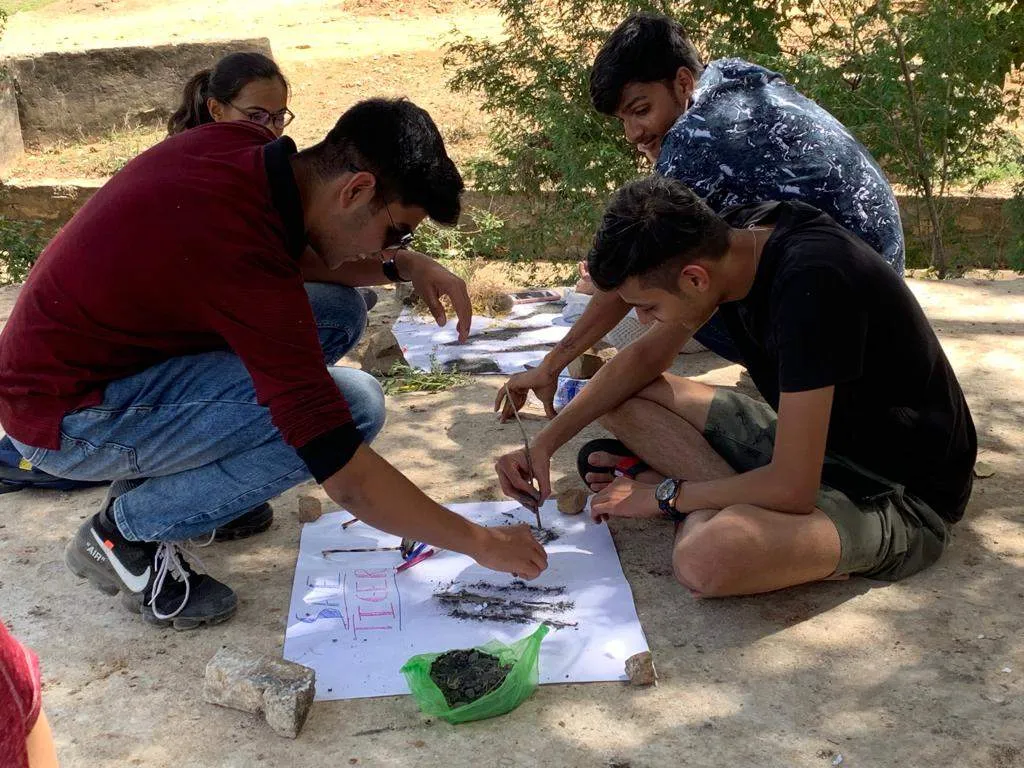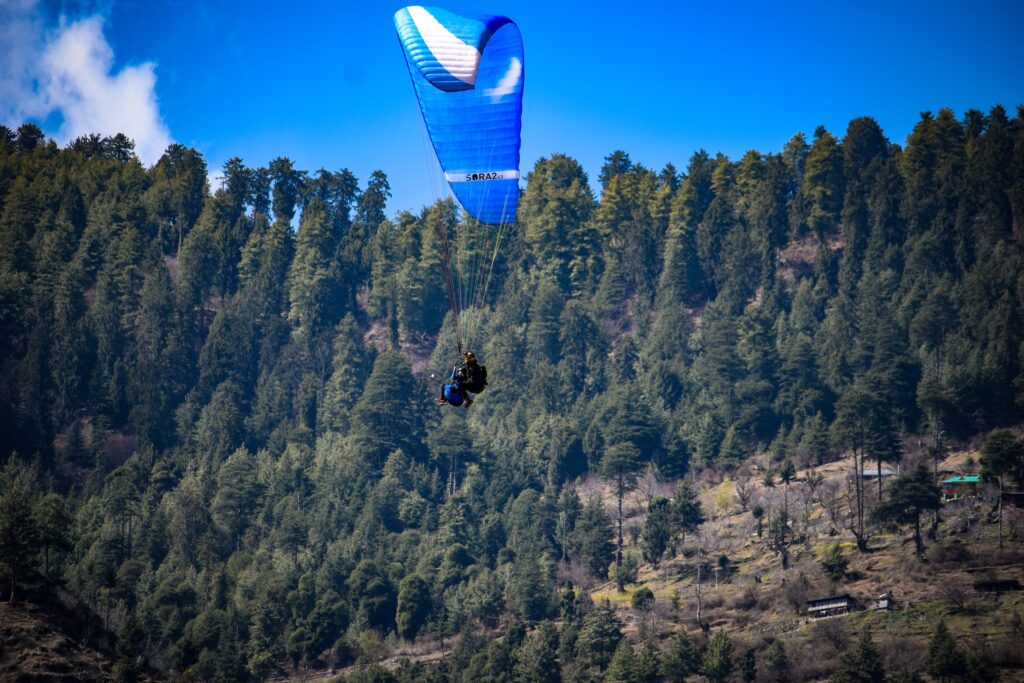Importance of travel for students: A transformative experience to cherish forever
You must have heard the famous adage,
“Travel is not a reward for working. It is education for living.”
It will be more rewarding to start this education as early as possible. Learning through travel is a way of showing the kids what the world actually is. A practical way of experiencing the things in life instead of just reading about them in books and on phones.
Yes, classroom teaching is essential for learning different concepts and subjects. But learning can happen beyond that as well, and it must. And here, beyond classrooms means by travelling, exploring, walking, navigating, and hiking.
Travelling expands their minds and thought processes, contributing to more idea generation. So, parents, schools, and universities must lay stress on learning through travel. Primarily, travelling leads to academic, social, and emotional benefits for students. Let’s look at these benefits that student tours and trips result in.
Academic Benefits
Historical and cultural knowledge

When students visit places of historical importance, they learn about the history behind them. The story of its construction or ruins. Story of who made it, why, and how the successors have carried it forward. So, learning about the what, why, how, where, and who of the place being visited gives immense knowledge to kids. Students can even conduct prior research on the destination to have an idea of what they will visit.
Moreover, visiting places in new cities, states, or countries increases awareness about local customs, traditions, philosophies, lifestyles, cultures, beliefs, history, and heritage. Students learn about the place’s architecture, religions, music, food, and art. They might be able to learn a few words of the local language or dialect as well. A walk in the museums teaches about the stories behind previous civilizations, wars, and things to remember.
Practical comprehension of concepts
Students learn about local and global places in their geography classes. But seeing a few of them in real makes it easier to remember related facts. Similarly, learning about the scientific experiments and processes in theory enables getting marks and passing exams. But when they see these experiments in practice, their understanding of the real-life application improves. This helps them gain better conceptual knowledge of the topics and complexities around them.
Critical thinking and problem-solving
The brain becomes more active when travelling because it has to think about many different things simultaneously and make decisions. It must consider finances, physical capabilities while travelling, social interactions, and emotional requirements. So, it becomes essential for students to analyze the various options for which they need logical capabilities.
Moreover, kids are exposed to several ideas during trips and expeditions that stimulate their minds better. Managing all this while enjoying the trip requires good decision-making. Such decision- making in times of discomfort makes them tactful, resourceful, and confident.
Travels mean embracing uncertainties and unknowns. And these can include some minor hiccups, delays, or setbacks during the journey. Here is where students learn to think through critically and solve problems. Even if the kids are not directly involved or affected by the obstruction, they observe others’ ways of coming out of it, which is also a learning. How to stay cool in tense situations, what actions to take, and how effectively to face the sticky situation is a great learning experience for students.
Social benefits
Relationship building and teamwork

The best part about student travel groups is building relationships. Maybe they don’t have enough time and bandwidth to build friendships with every classmate in school. However, with such trips, they can make meaningful connections with fellow travellers, tour guides, and locals.
These school trips foster situations where they can get to know each other, play with them, and interact with them. You never know, at the end of the trip, the friend list may have a new name. Kids’ acceptability of different personalities improves since they travel, stay, and interact with each other during trips. It can lead to lifelong communication and relationships that will be cherished forever.
Moreover, team-building activities during these school trips facilitate the development of teamwork, coordination, and communication skills.
Confidence and resilience
Travel means living for a few hours or days in an unknown environment different from home and school. Students start understanding what goes into moving away from the comfortable world. It requires adjustments to adapt to the new surroundings and a willingness to explore the unknowns and uncertainties. Thus, students learn adaptability and resilience.
All these foster confidence-building in students. The first display of grit is the initial decision to say yes to a trip. It shows that they are ready to venture out and move away from their usual known and comfortable surroundings. Also, their minds become more curious, creative, and innovative, leading to better wisdom.
Another area where they build confidence is travel Dos and Don’ts. Now, school trips are shorter with fixed itineraries and under experienced leadership. But as they grow older, they’ll be required to take trips of their own, personally or professionally. So, whatever tips they learn about health and safety, packing essentials, day-wise execution, and time management during school trips will help them in future expeditions.
Open-mindedness and empathy
A great benefit of travel for students is acceptance of the outside world. They can see how different others’ lives are and start accepting them. Moreover, they understand the merits and demerits of their world vs the outside world, thereby leading to an appreciation of what they have.
Another benefit of travelling is that when they travel with their classmates (not all friends), they learn about different perspectives, opinions, likes and dislikes, and other aspects of life. Sharing all these aspects expands their thought process and knowledge about possibilities in life. It also helps them celebrate diversity and differences in personalities and not look down upon others.
With trips, kids’ sensitivities to their surroundings and environment increases. They learn about new things, internalize them, draw insights from them, and use them to shape their character. They also engage in group activities and conversations and learn about their capabilities and needs, leading to empathy development.
Emotional benefits
A sense of freedom and responsibility

Travel gives students a sense of freedom, a life away from the usual stresses and challenges. They discover their true selves amid new friends and strangers. They can understand what it is like to be independent. Kids move out of their comfort zone, understand their strengths and weaknesses, and get to know their own real personalities.
But along with independence, they also get an idea of their responsibilities during these trips. Like what the Dos and Don’ts are in mountains, near beaches, at historical places, etc., packing essentials, ways to keep themselves and their belongings safe, and many other aspects. Students learn all these things and become more responsible.
Thus, it gives them a sense of independence and accountability, both of which are crucial in their emotional development.
In a way, it leads to their growth as an individual. They start appreciating the things they have in life at home with family, in school with friends, and otherwise. And they start trying new things that travel offers. Maybe they get more ideas about future career options or passions to pursue. It is a way to have a say in what they want to learn and how they want to be in the future. Travelling gives them a direction in life, which will take them to places.
Stress management and mental health improvement
A great feature of trips is connecting with nature in different forms. Students might travel to forests, mountains, beaches, or other natural beauties. Being in nature relieves stress and improves mental health. It is a break from academic pressures, giving students time to improve their emotional well- being.
Kids also get the opportunity to learn about how humans harm nature and what steps can be taken to reduce the causes and their impacts. They will learn to leave no trace so that the local diversity is saved from human destruction. In a way, they learn to abide by the rules of these locations.
Wholesome and enriching
Student trips give them an experience that nothing else can. As a young individual, they are more open to accepting new things. With increased awareness from their travelogues, they can make positive changes that will make them a better individual.
Such student trips enable beautiful memories of these experiences that can be cherished forever. It enriches kids’ lives, keeping them happy and positive for many days. It also makes them humble after seeing and realizing that they are just one tiny being in this wide world out there.
Travel means time away from familiar surroundings, which means time with self And this time enables students to develop new perspectives, question preconceived ideas, and think through things. They can develop new opinions and have an open mind to new ideas, food, people, surroundings, and basic needs. It can help them shape life’s values, priorities, and principles they will live by. It can be called self-discovery.
Indeed, travel is transformative, and such transformation is essential for students a few times a
year.
Concluding thoughts
Thus, travel is important for students as they gain educational, social, and emotional benefits. The best part is that travel is fun. And who doesn’t want fun and happiness in life? So, if you want a break from your daily stress and study pressure, go on trips and treks.
Embark on such trips, venture out to see new places, taste unknown and local flavours, listen to new music, smell novel scents, learn different ways of life, share interesting stories, and experience the new YOU. Thus, trips and treks for students are not only fun outdoor activities but an educational experience that impacts their personal and professional lives.
If you are looking for fun and educational student trips, Positive7 is the place to contact. You can visit our website (www.positive.in), mail us at sunil@positive.in or call at +91 9712913577.
